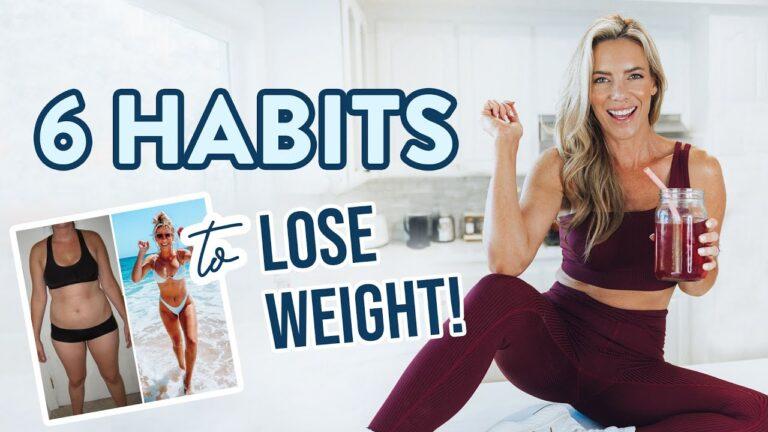It’s no secret that eating a balanced, healthy diet can deliver many health benefits, including a reduced risk of chronic diseases, such as diabetes and heart disease, regulating your mood, and supporting a healthy-for-you weight.
These are just some of the many reasons to seek to improve your eating habits.
On the other hand, going on extreme diets or restricting your diet too much can lead to negative consequences for health and wellbeing, too.
As one recent study pointed out, it’s not dietary restriction per se that causes problems. Indeed, following a legitimate, evidence-based program can be safe and effective for losing weight. It’s the extreme, fad, or unhealthy dieting practices (which tend to flourish via social media platforms) that can be problematic and contribute to shame and stigma surrounding one’s body.
“Many people have been fed a message since birth that they should be smaller than they are or that they should not be satisfied with their body if they’re larger than the cultural ideal,” says Paula Freedman, PsyD, a licensed clinical psychologist and certified intuitive eating counselor based in Chicago.
Fad diets prey on these types of problematic ways of thinking about ourselves and our bodies. They’re marketed to our insecurities, not necessarily our best health.
That’s why examining exactly why you want to change your diet — and asking yourself important questions — can be extremely valuable in terms of identifying healthy goals for you and developing a safe plan to get there.
And if you have any history of an eating disorder or disordered eating, it’s a good idea to work with your mental healthcare team or speak to a registered dietitian who is knowledgeable in eating disorder recovery (or do both), says Freedman.
5 Questions to Ask Yourself Before Starting a Diet
If you’re currently thinking about starting a diet, the choice is up to you.
As many as 17 percent of adults report following a special diet, most commonly a weight loss or low-calorie diet, on a given day, according to data published in 2020 by the Centers from Disease Control and Prevention (CDC). And 49 percent of adults in the United States tried to lose weight within the past year, according to 2018 data from CDC (PDF).
“Everyone has body autonomy. No one can tell you what you are or aren’t to do with, or how you should or shouldn’t think, about your body,” says Christine Byrne, MPH, RD, an anti-diet dietitian-nutritionist based in Raleigh, North Carolina.
But the fact that we live in a society that tends to praise thinness and stigmatize larger bodies can complicate how we think about our bodies — and how we think about what we want our bodies to look like and be, Byrne says. “It can be difficult to separate what it is you want inherently and what you want to do to fit into what’s around you.”
Ultimately, a healthy pattern of eating looks different for everyone — despite what diet culture might tell you. “Ultimately, it’s about eating in a way that honors your body, mind, and spirit,” says Freedman.
That means eating in a way that’s nourishing physically but is also good for your mental health, which involves feeling at ease with the foods you’re eating, she says.
So, if you want to change up your eating habits to make a lifestyle change for the better, how can you make sure you’re not launching yourself down the path of toxic diet culture? Here are five questions experts suggest you ask yourself.
1. What Am I Hoping to Get Out of This Diet?
And be wary if the answer leads you to a specific number that may or may not show up on your scale. The authors of the previously mentioned study note that when dieting, the focus should be on improving health behaviors, such as improving food choices or getting more physical activity, rather than solely focusing on the scale.
Freedman agrees: “Weight loss as a measure is really not a great way of determining whether someone is healthy or not.”
Health doesn’t look the same for everyone, and health is not determined by a certain number or body size. “You can pursue healthy habits and change your health for the better, even if you don’t lose weight,” Freedman says.
What’s more, adds Byrne, focusing only on the goal of weight loss may not keep your interest or motivation for very long, especially if you’re discouraged by the pace or amount you’re losing — or what you have to do to get there.
2. Are My Goals Unrealistic for My Body Size?
“Our bodies are diverse. They always have been and they always will be,” says Freedman. Often, fad, restrictive, or extreme diets lead with the idea that they can transform your body.
However, if you have to go to increasingly drastic measures or extremes to maintain a certain body size or weight loss, then your diet — or this prospective diet — may be one that’s toxic or dangerous for you.
“We know that efforts to intentionally manipulate body size aren’t sustainable for the vast majority of people,” Freedman says. Decoupling from this motivation is understandably really hard, especially in a society that values a thin ideal. Freedman recommends working with a size-inclusive therapist or other mental health professional to help work through these beliefs and feelings.
3. What Is Your Definition of Health, Anyway?
Your reasons for pursuing weight loss may be valid. It’s okay, for example, if you simply don’t feel comfortable in your current body weight and want to make a change.
But take time to really dig deep and ask yourself what you really want out of this behavior change you’re pursuing, says Freedman. “Try to honor your health first. Do you want to improve your lung capacity? Feel energized after waking up in the morning?” she asks.
We’re not as in control of the number on the scale as we’re told, Freedman adds. One research review notes that half of one’s weight is regulated by genetics and the other half is dictated by diet and exercise habits. It’s not, as the researchers point out, all about “willpower.”
But you are in control of health behaviors, such as taking regular walks to improve your aerobic fitness or maintaining a regular sleep-wake schedule so you feel more ready for your day. The bottom line: Think about what healthy means to you and what behaviors will actually get you there.
4. Does This Diet Make You Feel Worse About Food?
Red flags of a toxic diet include having to track your food, cut out food groups, avoiding certain foods, or even recommendations to eat a certain amount of some very specific food (like cabbage soup or boiled eggs) every day, says Byrne.
If you’re evaluating if changes to your diet are coming from a healthy place, think about if this is something you could do forever.
Also important is assessing how you feel while following the diet. Do you think about food all the time or are you preoccupied with what you’ll eat next or what you are allowed (or not allowed) to eat?
“It’s not healthy for food to take up that much space in your brain,” says Byrne. Of course, initial changes will require thinking — such as “I’m going to add a piece of fruit to breakfast” — but shouldn’t become a distraction that prevents you from enjoying life or interfering with work, other responsibilities, or relationships.
5. Doctor, Why Are You Asking Me to Lose Weight?
This is not a question to pose to yourself, but one to ask your doctor if they propose you go on a diet to lose weight. There is some really valid data to show that losing weight is associated with better health outcomes, and that’s one reason why your doctor might suggest at your next appointment that you go on a diet. For example, losing just 5 to 7 percent of your body weight can help prevent prediabetes from progressing to diabetes, according to the CDC.
But if your goals don’t align with your doctor’s, your efforts may just be futile (or harmful). A more helpful conversation with your doctor may instead be: What are we really looking to do? suggests Byrne.
When it comes to prediabetes, maybe it’s lowering your A1C (a measure of blood sugar control over about three months). The conversation then becomes how can you eat in a way that maintains more stable blood sugar, she explains. That puts the focus on health behaviors (sustainable changes to your diet and likely exercise, too) rather than outcomes (weight loss), and you can develop the habits that feel good for both your body.
This content was originally published here.



















